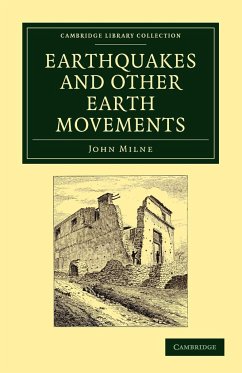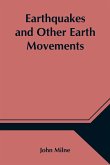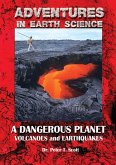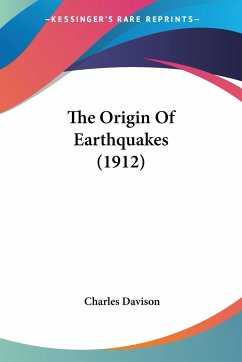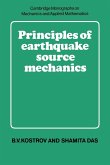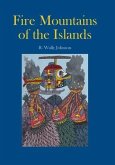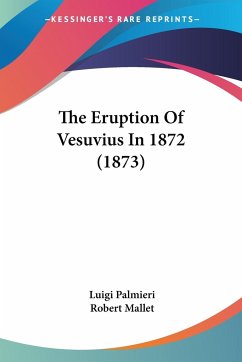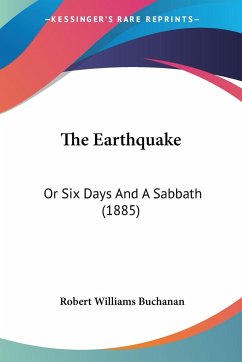John Milne
Earthquakes and Other Earth Movements
John Milne
Earthquakes and Other Earth Movements
- Broschiertes Buch
- Merkliste
- Auf die Merkliste
- Bewerten Bewerten
- Teilen
- Produkt teilen
- Produkterinnerung
- Produkterinnerung
An 1886 study of the causes and effects of earthquakes by a leading nineteenth-century expert in seismology.
Andere Kunden interessierten sich auch für
![Earthquakes and Other Earth Movements Earthquakes and Other Earth Movements]() John MilneEarthquakes and Other Earth Movements22,99 €
John MilneEarthquakes and Other Earth Movements22,99 €![A Dangerous Planet A Dangerous Planet]() Peter T ScottA Dangerous Planet36,99 €
Peter T ScottA Dangerous Planet36,99 €![The Origin Of Earthquakes (1912) The Origin Of Earthquakes (1912)]() Charles DavisonThe Origin Of Earthquakes (1912)15,99 €
Charles DavisonThe Origin Of Earthquakes (1912)15,99 €![Principles of Earthquake Source Mechanics Principles of Earthquake Source Mechanics]() B. V. KostrovPrinciples of Earthquake Source Mechanics69,99 €
B. V. KostrovPrinciples of Earthquake Source Mechanics69,99 €![Fire Mountains of the Islands: A History of Volcanic Eruptions and Disaster Management in Papua New Guinea and the Solomon Islands Fire Mountains of the Islands: A History of Volcanic Eruptions and Disaster Management in Papua New Guinea and the Solomon Islands]() R. Wally JohnsonFire Mountains of the Islands: A History of Volcanic Eruptions and Disaster Management in Papua New Guinea and the Solomon Islands32,99 €
R. Wally JohnsonFire Mountains of the Islands: A History of Volcanic Eruptions and Disaster Management in Papua New Guinea and the Solomon Islands32,99 €![The Eruption Of Vesuvius In 1872 (1873) The Eruption Of Vesuvius In 1872 (1873)]() Luigi PalmieriThe Eruption Of Vesuvius In 1872 (1873)16,99 €
Luigi PalmieriThe Eruption Of Vesuvius In 1872 (1873)16,99 €![The Earthquake The Earthquake]() Robert Williams BuchananThe Earthquake19,99 €
Robert Williams BuchananThe Earthquake19,99 €-
-
-
An 1886 study of the causes and effects of earthquakes by a leading nineteenth-century expert in seismology.
Produktdetails
- Produktdetails
- Verlag: Cambridge University Press
- Seitenzahl: 388
- Erscheinungstermin: 11. Februar 2011
- Englisch
- Abmessung: 216mm x 140mm x 23mm
- Gewicht: 546g
- ISBN-13: 9781108072632
- ISBN-10: 1108072631
- Artikelnr.: 33272371
- Herstellerkennzeichnung
- Libri GmbH
- Europaallee 1
- 36244 Bad Hersfeld
- gpsr@libri.de
- Verlag: Cambridge University Press
- Seitenzahl: 388
- Erscheinungstermin: 11. Februar 2011
- Englisch
- Abmessung: 216mm x 140mm x 23mm
- Gewicht: 546g
- ISBN-13: 9781108072632
- ISBN-10: 1108072631
- Artikelnr.: 33272371
- Herstellerkennzeichnung
- Libri GmbH
- Europaallee 1
- 36244 Bad Hersfeld
- gpsr@libri.de
John Milne (1850-1913) was a renowned British geologist and mining engineer who made significant contributions to the field of seismology. Known as the 'Father of Modern Seismology,' Milne's pioneering work on earthquake waves and the instruments used to detect them laid the foundation for modern earthquake science. After his education at the Royal School of Mines in London, Milne embarked on numerous geological expeditions, which included his tenure as a professor at the Imperial College of Engineering in Tokyo. It was in Japan where Milne's interest in earthquakes deepened, leading him to co-found the Seismological Society of Japan. His book, 'Earthquakes and Other Earth Movements' (1886), is a testament to his in-depth study of seismic activity. Within its pages, Milne elucidates the causes and effects of earthquakes and discusses the early development of seismographs. His literary style is marked by methodical explanation and the keen ability to make complex science accessible to readers. Milne's legacy is enshrined in the advances of earthquake monitoring and disaster preparedness, and he remains a revered figure in the study of the Earth's dynamic processes.
Preface
1. Introduction
2. Seismometry
3. Earthquake motion discussed theoretically
4. Earthquake motion as deduced from experiment
5. Earthquake motion as deduced from observation on earthquakes
6. Effects produced by earthquakes upon buildings
7. Effects produced upon buildings continued
8. Effects of earthquakes on land
9. Disturbances in the ocean
10. Determination of earthquake origins
11. The depth of an earthquake centrum
12. Distribution of earthquakes in space and time
13. Distribution of earthquakes in time continued
14. Distribution of earthquakes in time continued
15. Barometrical fluctuations and earthquakes - fluctuations in temperature and earthquakes
16. Relation of seismic to volcanic phenomena
17. The cause of earthquakes
18. Prediction of earthquakes
19. Earth tremors
20. Earth pulsations
21. Earth oscillations
Appendix
Index.
1. Introduction
2. Seismometry
3. Earthquake motion discussed theoretically
4. Earthquake motion as deduced from experiment
5. Earthquake motion as deduced from observation on earthquakes
6. Effects produced by earthquakes upon buildings
7. Effects produced upon buildings continued
8. Effects of earthquakes on land
9. Disturbances in the ocean
10. Determination of earthquake origins
11. The depth of an earthquake centrum
12. Distribution of earthquakes in space and time
13. Distribution of earthquakes in time continued
14. Distribution of earthquakes in time continued
15. Barometrical fluctuations and earthquakes - fluctuations in temperature and earthquakes
16. Relation of seismic to volcanic phenomena
17. The cause of earthquakes
18. Prediction of earthquakes
19. Earth tremors
20. Earth pulsations
21. Earth oscillations
Appendix
Index.
Preface
1. Introduction
2. Seismometry
3. Earthquake motion discussed theoretically
4. Earthquake motion as deduced from experiment
5. Earthquake motion as deduced from observation on earthquakes
6. Effects produced by earthquakes upon buildings
7. Effects produced upon buildings continued
8. Effects of earthquakes on land
9. Disturbances in the ocean
10. Determination of earthquake origins
11. The depth of an earthquake centrum
12. Distribution of earthquakes in space and time
13. Distribution of earthquakes in time continued
14. Distribution of earthquakes in time continued
15. Barometrical fluctuations and earthquakes - fluctuations in temperature and earthquakes
16. Relation of seismic to volcanic phenomena
17. The cause of earthquakes
18. Prediction of earthquakes
19. Earth tremors
20. Earth pulsations
21. Earth oscillations
Appendix
Index.
1. Introduction
2. Seismometry
3. Earthquake motion discussed theoretically
4. Earthquake motion as deduced from experiment
5. Earthquake motion as deduced from observation on earthquakes
6. Effects produced by earthquakes upon buildings
7. Effects produced upon buildings continued
8. Effects of earthquakes on land
9. Disturbances in the ocean
10. Determination of earthquake origins
11. The depth of an earthquake centrum
12. Distribution of earthquakes in space and time
13. Distribution of earthquakes in time continued
14. Distribution of earthquakes in time continued
15. Barometrical fluctuations and earthquakes - fluctuations in temperature and earthquakes
16. Relation of seismic to volcanic phenomena
17. The cause of earthquakes
18. Prediction of earthquakes
19. Earth tremors
20. Earth pulsations
21. Earth oscillations
Appendix
Index.

